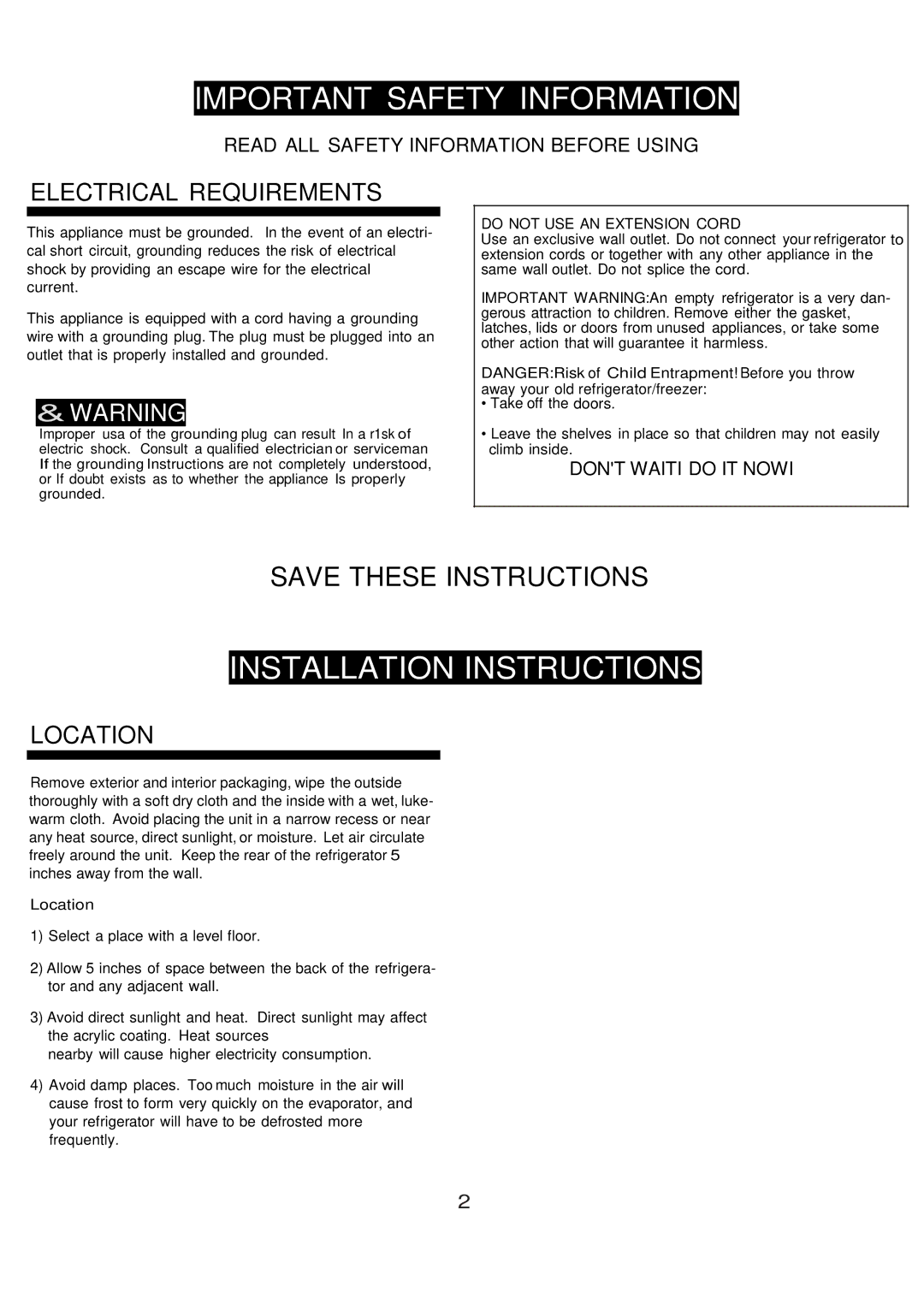
IMPORTANT SAFETY INFORMATION
READ ALL SAFETY INFORMATION BEFORE USING
ELECTRICAL REQUIREMENTS
This appliance must be grounded. In the event of an electri- cal short circuit, grounding reduces the risk of electrical shock by providing an escape wire for the electrical current.
This appliance is equipped with a cord having a grounding wire with a grounding plug. The plug must be plugged into an outlet that is properly installed and grounded.
&WARNING
Improper usa of the grounding plug can result In a r1sk of electric shock. Consult a qualified electrician or serviceman If the grounding Instructions are not completely understood, or If doubt exists as to whether the appliance Is properly grounded.
DO NOT USE AN EXTENSION CORD
Use an exclusive wall outlet. Do not connect your refrigerator to extension cords or together with any other appliance in the same wall outlet. Do not splice the cord.
IMPORTANT WARNING:An empty refrigerator is a very dan- gerous attraction to children. Remove either the gasket, latches, lids or doors from unused appliances, or take some other action that will guarantee it harmless.
DANGER:Risk of Child Entrapment! Before you throw
away your old refrigerator/freezer:
• Take off the doors.
• Leave the shelves in place so that children may not easily climb inside.
DON'T WAITI DO IT NOWI
SAVE THESE INSTRUCTIONS
INSTALLATION INSTRUCTIONS
LOCATION
Remove exterior and interior packaging, wipe the outside thoroughly with a soft dry cloth and the inside with a wet, luke- warm cloth. Avoid placing the unit in a narrow recess or near any heat source, direct sunlight, or moisture. Let air circulate freely around the unit. Keep the rear of the refrigerator 5 inches away from the wall.
Location
1)Select a place with a level floor.
2)Allow 5 inches of space between the back of the refrigera- tor and any adjacent wall.
3)Avoid direct sunlight and heat. Direct sunlight may affect the acrylic coating. Heat sources
nearby will cause higher electricity consumption.
4)Avoid damp places. Too much moisture in the air will cause frost to form very quickly on the evaporator, and your refrigerator will have to be defrosted more frequently.
2
